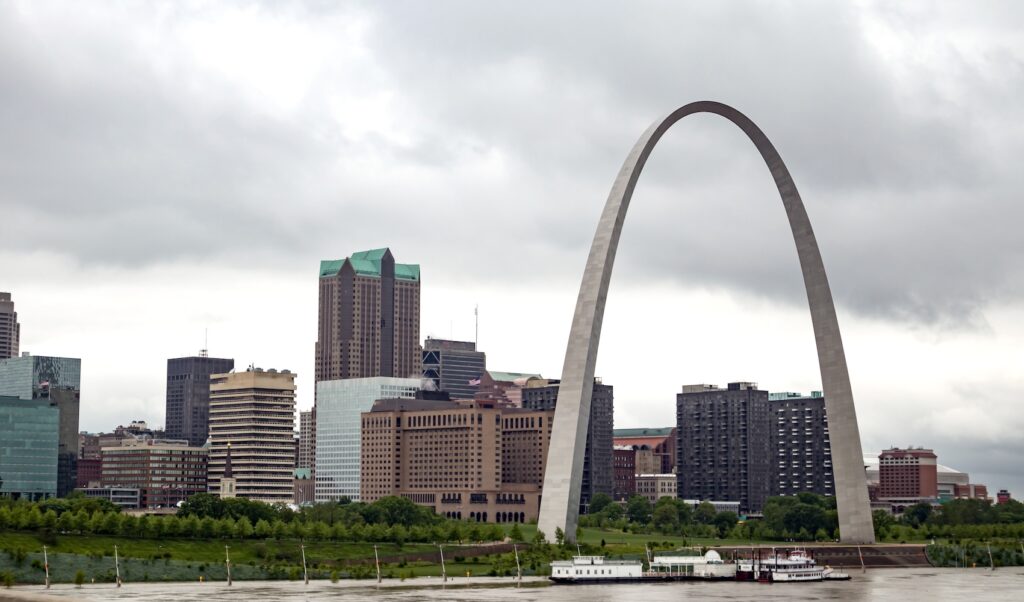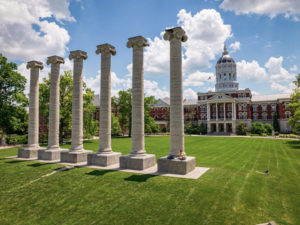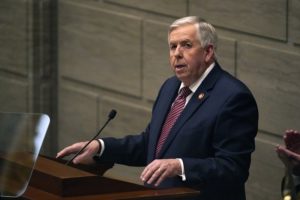St. Louis joins other cities in raising school taxes while student achievement falls
Should public schools raise taxes to cover payroll, even amid failing test scores?
That’s apparently what the St. Louis Public Schools district is considering: raising property taxes $6 million…

Should public schools raise taxes to cover payroll, even amid failing test scores?
That’s apparently what the St. Louis Public Schools district is considering: raising property taxes $6 million annually to help cover a $35 million operating budget shortfall, according to a report. The tax hike would not require approval from city voters.
The bulk of the shortfall was caused by $32 million in raises for managers and non-teaching staff, negotiated last year. Those raises have since been put on hold indefinitely, but a shortfall remains.
And this is in a district where students routinely struggle to pass state exams.
Less than 7% of St. Louis students attended a school where at least half the students scored either proficient or advanced on the Missouri Assessment Program for both English and Math in 2016, according to the city’s website.
“Schools where students do not meet standards are struggling to prepare children to succeed in life,” the city says under Why Do School Test Scores Matter? “The low number of schools in which a majority of students score proficient on standardized tests does a disservice to students, families, and the community.
“We have created a pipeline that produces less resilient and economically competitive residents. Our city’s ability to attract new residents and families is negatively impacted by the performance of our public schools. Our city’s ability to attract new companies and employers is negatively impacted by having a poorly educated workforce.”
Such issues have caused many families to exit the district.
St. Louis has 18,000-plus students and more than 3,000 staff, but enrollment is down from more than 25,000 students in 2013, according to the district’s profile. Still, costs continue to rise.
The situation is even worse in Chicago, where that city’s public school district faces a half-billion-dollar budget shortfall, NBC reports.
Mayor Brandon Johnson, a former member of the Chicago Teachers Union who received its strong backing during his campaign, has said he wants a fully funded education system but has also promised no new property taxes.
How he’ll manage to do that remains unclear.
Chicago test scores have been notoriously low for years. About 26% of students scored proficient in reading and 17.5% in math in 2023. Both numbers are lower than the pre-pandemic scores of 2019, although they edged up slightly from 2022.
Such issues highlight the complexities of running districts with thousands of staff under collective bargaining agreements, or union contracts. Those contracts typically include annual raises and “step” pay increases, guaranteeing the cost of education will rise annually, whether or not student performance improves.
The cost can seem even more astounding when the district is mismanaged, or students routinely lag behind on testing and other metrics. With tens or even hundreds of millions of dollars in play – or in Chicago’s case, $9.9 billion – it can be hard to have confidence the money is being well-spent.
“Chicago’s low-income students fared even worse in the [2022 test data],” writes the Illinois Policy Institute. “Yet the Chicago Teachers Union and other union allies want to end the Invest in Kids tax credit scholarship program providing low-income students and families with other learning options.”
The Invest in Kids tax credit, which provided scholarships to students seeking alternatives to public schools, expired last December after not being renewed by the Illinois Legislature. The program gave out more than 37,000 scholarships worth more than $280 million since its founding in 2018.
Similar programs that benefit investors and provide school choice options to low- and moderate-income families are in place in states such as Missouri, but they are often virulently opposed by teachers’ unions and public-school advocacy groups.
Public schools receive most of their funding from two sources: 1) local property taxes and 2) state and sometimes federal aid. A cut in government dollars or district overspending can leave taxpayers holding the bag.
Indeed, several New Jersey districts are suing or considering suing the state after it cut their funding in order to shift more dollars to “underfunded” schools, which are typically in poor and minority areas, according to News 12 New Jersey. The cuts are part of a multi-year plan supported by Democrat Gov. Phil Murphy.
Affected districts faced cutting jobs, programs and even entire schools if taxes didn’t go up. The state allowed a one-time tax hike this year of up to 9.9% so districts could maintain their programs. Murphy has said the state’s funding formula will be reassessed.
Longtime educator Walt Gardner, who taught 28 years in the Los Angeles Unified School District, doubts more money will close the racial achievement gap.
“The real problem is not funding but demands that teachers be parents, police, and psychiatrists, rather than just teach their subject,” Gardner wrote in 2021. “No amount of funding will ever change the situation.”



